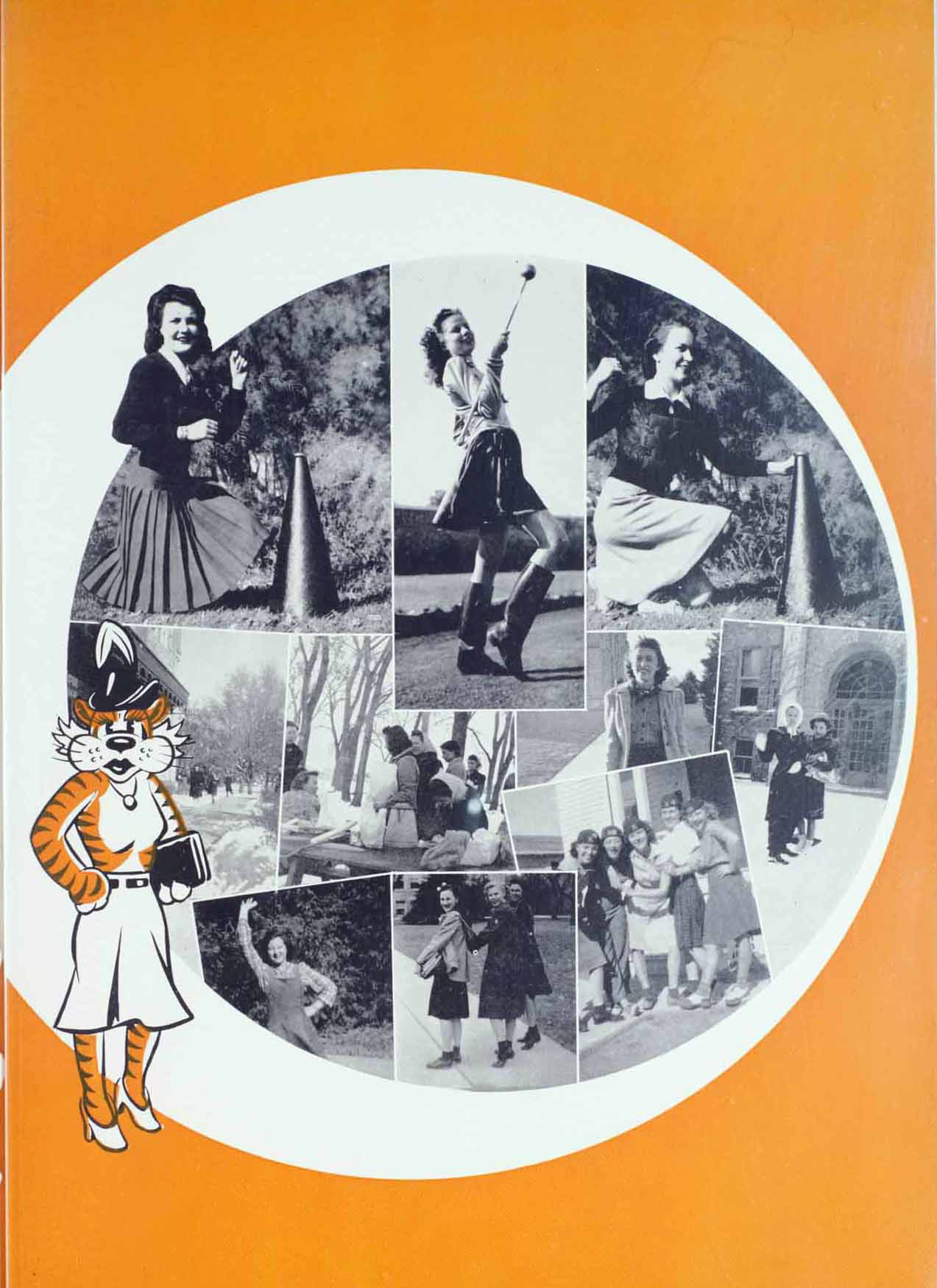Fort Hays State's Reveille yearbook archive is reborn

New digital version in Forsyth Library's Scholars Repository
is faster, friendlier, better looking & easier to search
08/08/17
HAYS, Kan. - Complete issues of Fort Hays State University's Reveille yearbooks - from the first in 1914 to the last in 2003 - are now online, freely available to the public in clean, crisp, fast-loading and searchable digital versions in Forsyth Library's FHSU Scholars Repository.
The yearbooks are available through the Archives Online link from the Scholars Repository homepage, scholars.fhsu.edu. The Reveille collection is one of the first major collections to be transferred to the Scholars Repository by Elizabeth Chance, Forsyth's new digital curation librarian. The Scholars Repository went live in January 2016.
"I just got here in April, and I wanted to do something that was of relevance to a wide audience," said Chance.
"This is something that people want to see," she said. "They want to come to us, and we're trying to draw traffic to us, and this is something that people are interested in. Yearbook collections are some of the highest-trafficked collections at other institutions."
Features of the Scholars Repository version of The Reveille:
• The collection is displayed in book gallery style.
• Individual books are presented in a page-flip reader format.
• The collection can be browsed as a whole or by decade.
• Full-text downloads are available.
• All books are fully text searchable.
• Accessibility options include zoom and a read-out-loud function.
She said that each yearbook took about eight hours to scan and another four hours to create the final digital book. The 89 books in The Reveille's history comprise almost a terabyte of data in 20,776 individual files.
This is actually the third version of Reveille to go online in Forsyth's collections. The first was in 2009, shortly after the library's Digital Collections were created in 2008. The technology available at the time did not allow for searching text and, said Chance, the image quality "was not what we can produce today."
Many of the yearbooks were re-scanned in 2014 to take advantage of technological advances that made it possible to search pdf text. But the digital home of version No. 2 requires very large files that took a long time to load.
"That incarnation of the collection was a huge improvement, but the user experience left much to be desired," said Chance.
Reveille 3.0, she said, "easily stands among the best yearbook collections of major universities."
The improvements in the Reveille collection are due not only to improvements in technology but also to the difference in platform. The last Reveille collection was housed on a platform called CONTENTdm, designed primarily for image files. The collection is now housed on Digital Commons, a platform designed to support large collections of pdf files.
Digital Commons also has advantages for Forsyth in addition to advantages for Forsyth patrons.
"Obviously the yearbooks, when we created Digital Collections at Forsyth Library, were low-hanging fruit," said Jennifer Sauer, Forsyth's librarian for scholar services and electronic resources. She has been involved with the library's Digital Collections from the beginning.
"They appeal to a lot of people and are easily scanned into digital images and are rich in content," she continued. "So, it was one of those first things."
But in addition to the slower, less functional end-user experience of the previous platform, the larger files took up a lot of space. Storage space on CONTENTdm comes at added cost, but the Digital Commons license has unlimited space.
"Moving such large files, and so many of them, over to Digital Commons and the FHSU Scholars Repository will free up space on CONTENTdm for other types of collections that are better suited to how it works," said Sauer.
Another benefit of Digital Commons is its reach. The Scholars Repository is part of the global Digital Commons community.
"This is a really powerful network," said Sauer. "Content gets picked up and indexed across the Internet fast, so it will come up in a lot of search inquiries and drive even more traffic to the FHSU Scholars Repository."
Cutline: A collage from the 1941 Reveille.